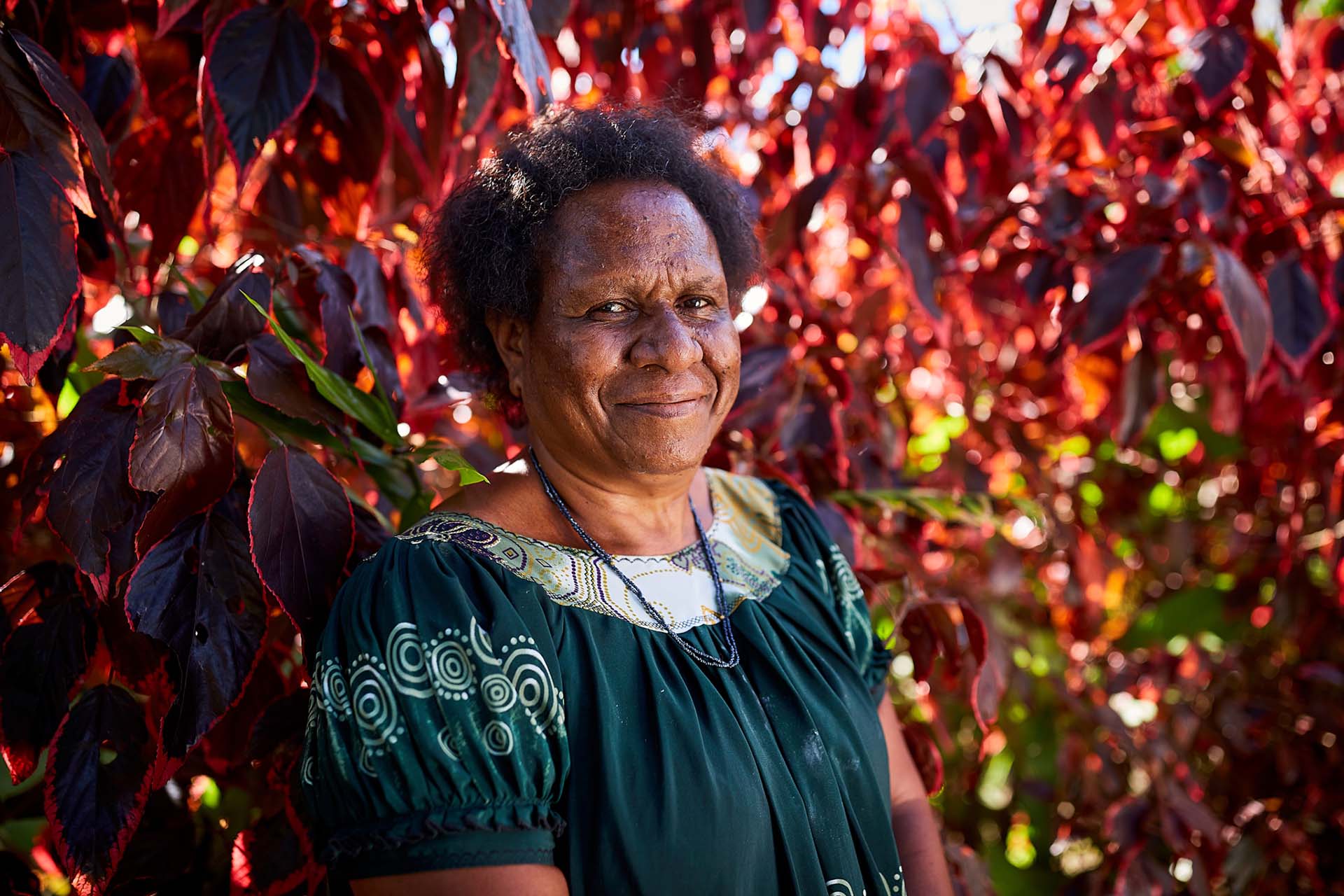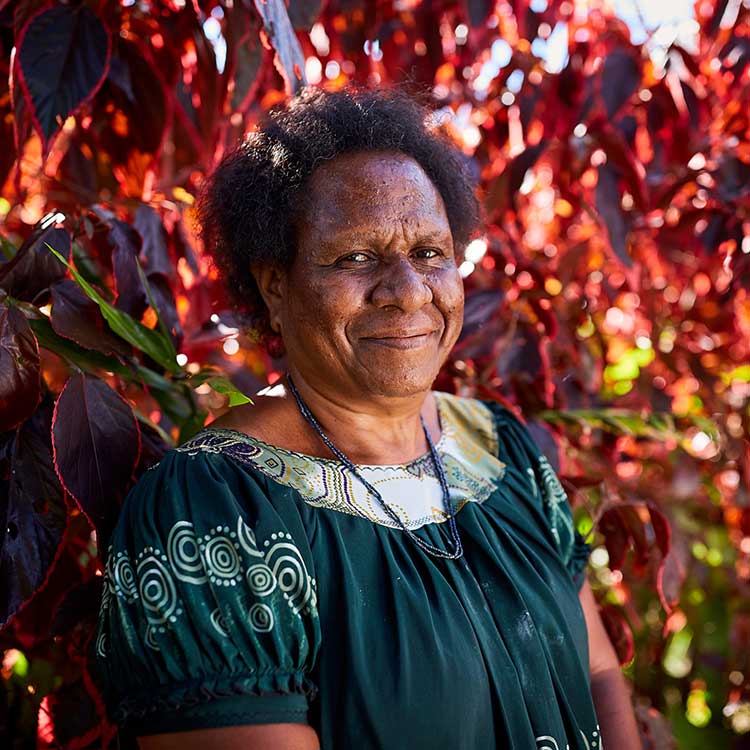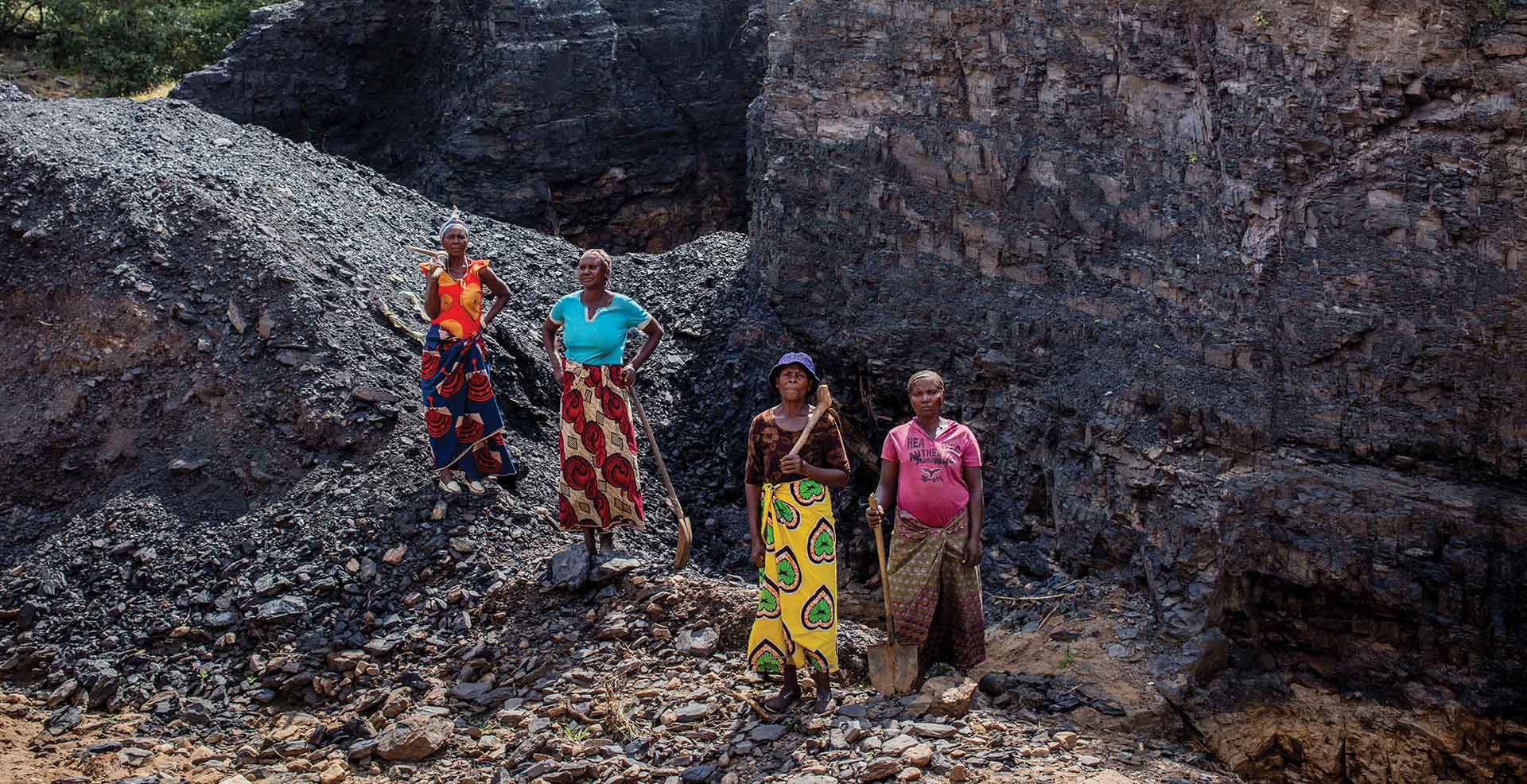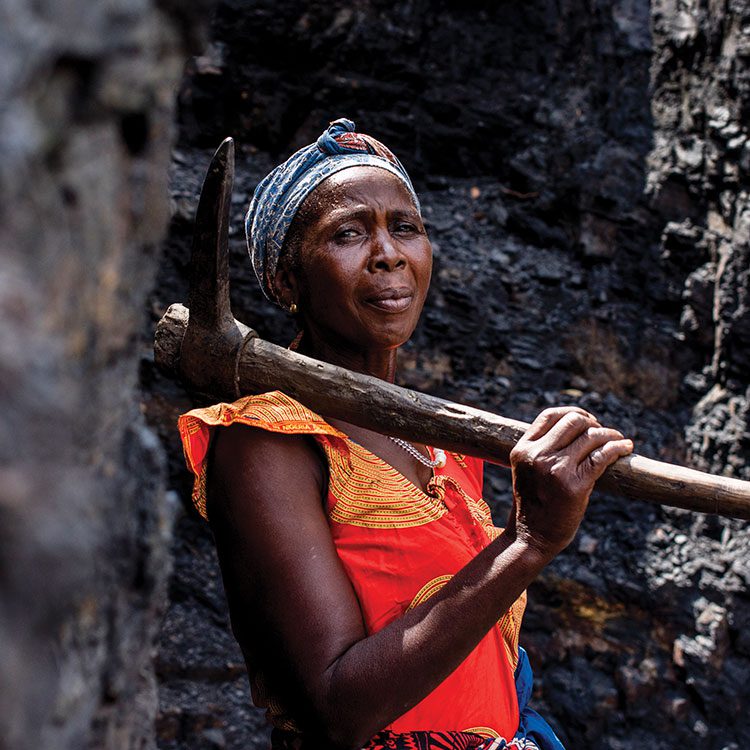Thanks to you…
In the last year, we reached 25.7 million people in 68 countries with life-saving emergency aid and life-changing solutions to help tackle poverty — an epic achievement!
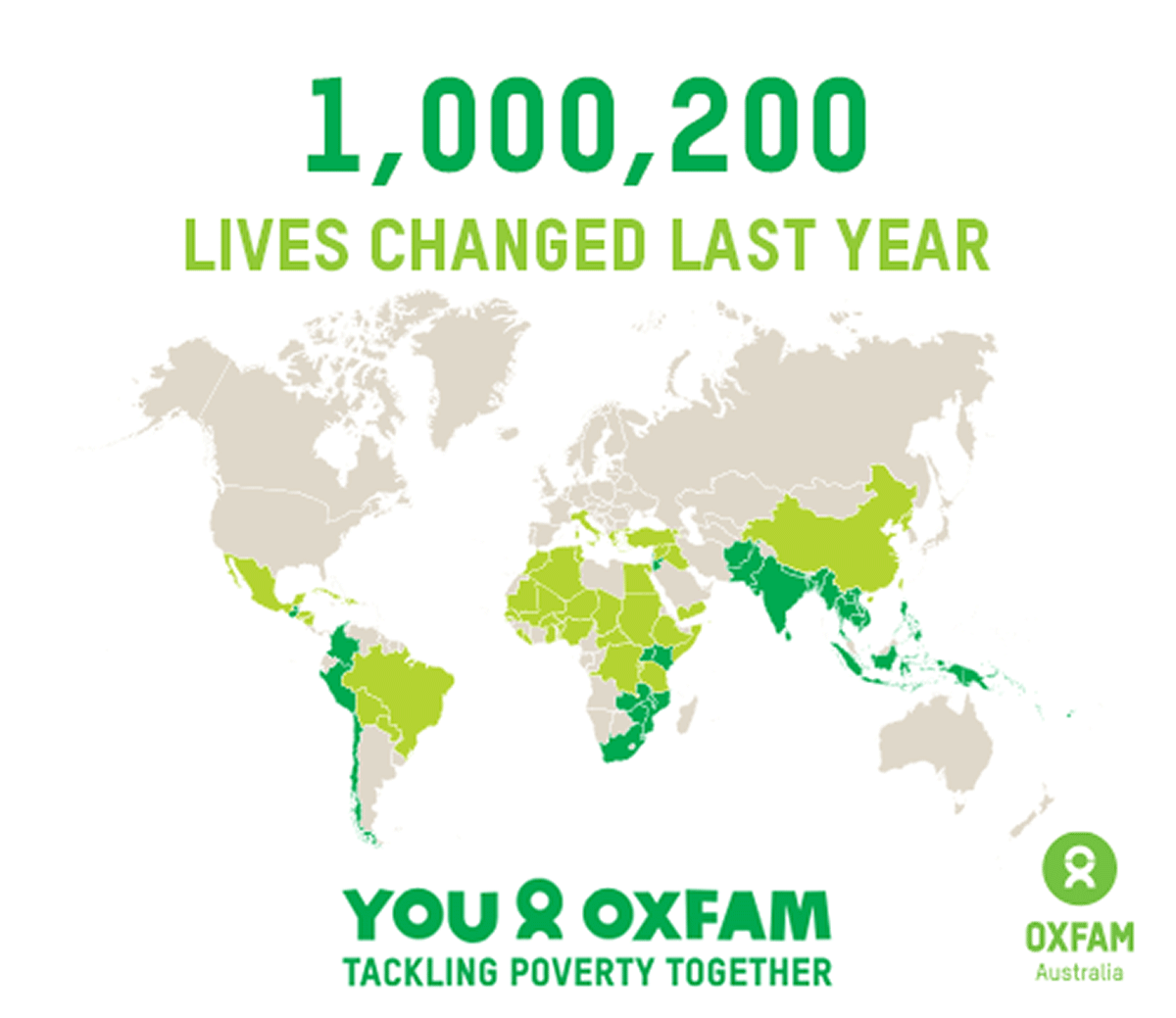
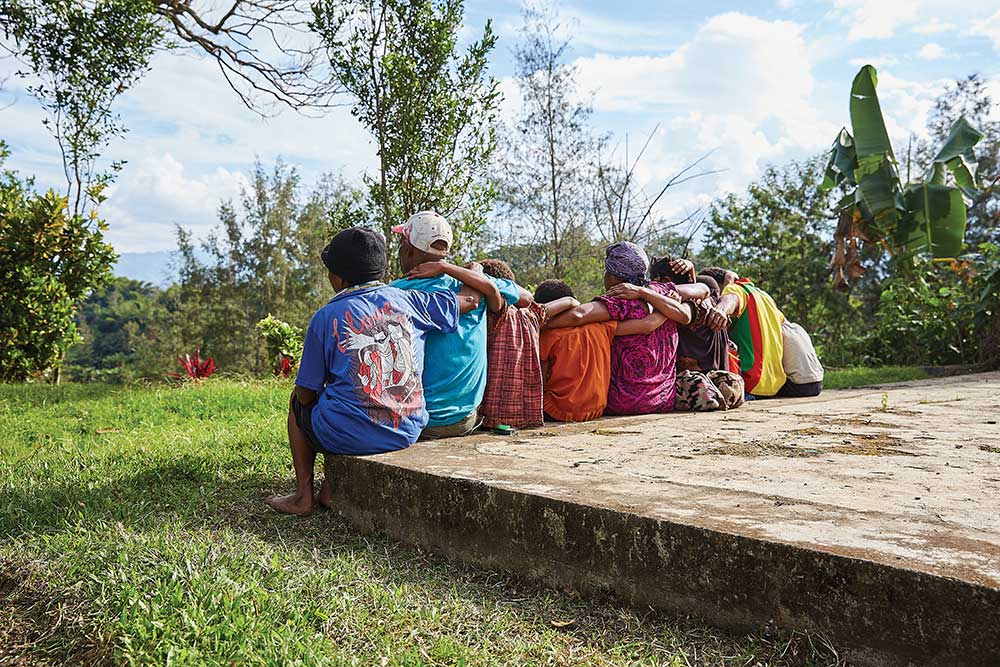
CONTENT NOTICE: DISTRESSING CONTENT
For confidential, 24-hour support or advice, please call Lifeline Australia (crisis and suicide prevention) on 13 11 14 or 1800RESPECT (family violence and sexual assault counselling) on 1800 737 732.
Lives on the line
The scope of Oxfam’s life-saving work is not limited to famines, floods and warzones. In the remote highlands of Papua New Guinea (PNG), we partner with Kafe Urban Settlers Women’s Association (KUSWA) to provide vital support, safety and healing for those accused of sorcery.
Home to 852 known languages, PNG is one of the world’s most culturally diverse nations. It’s also one of the most rural — only 18% of the population live in urban centres. Shielded by dense forests and mountains, PNG remains one of the world’s least explored countries, culturally and geographically.
In PNG, ancient beliefs and traditions are still part of everyday life. “Sanguma” — a local word meaning sorcery or black magic — is one such tradition.
Throughout the PNG highlands, belief in sorcery is widespread and people often attribute unexplained deaths, illnesses and mishaps to someone in the community practicing sanguma. And tragically, accusations of sorcery often give rise to devastating mob violence, torture and life-long ostracism.
But with your help, we’re working with partners in PNG to connect survivors with the support and safety they need to rebuild their lives.
Champions of change
Many don’t survive the violence that stems from accusations of sorcery in PNG. And those who do carry the physical, emotional and social scars with them for a lifetime. But thanks to our partner Kafe Urban Settlers Women’s Association (KUSWA), more and more survivors are getting justice and a chance to heal.
KUSWA founder Eriko (pictured below) is no stranger to the impacts of violence; she survived many years of unrelenting intimate-partner violence.
“It was a nightmare,” she says. “I couldn’t sleep at night. I went to sleep but my eyes are still open thinking about what I can do for my children. I’ve gone through so much violence and my husband nearly killed me too.”
After years of abuse, Eriko felt compelled to take a stand. Together with seven other survivors, she formed KUSWA in 2003. The organisation provides crisis support, legal referrals and repatriation services for survivors of gender-based violence and sorcery accusation attacks.
While men are sometimes accused of practicing sanguma, Eriko says it’s mostly women who face such accusations — and many don’t live to tell the story.
“When a community accuse a woman, when it’s in a community, they don’t report,” she says. “They kill some women and they throw them in the big river.”
“Before we [got this] funding from Oxfam, it was a bushfire — so many women were killed. Nobody knows how many women are drowned in the water.”
Now, thanks to the generosity and compassion of supporters like you, our partner KUSWA is working closely with police, government, community leaders and non-government organisations to prevent or intercept attacks, and provide safety and justice for survivors.
“We are all connected,” Eriko says.
“We are working together.” “My whole idea is to protect life,” she adds. “I don’t want women to be killed. I want everyone to be safe.” says, “The water is bad now. The road used to be tarred but there is no more tar on the road.”
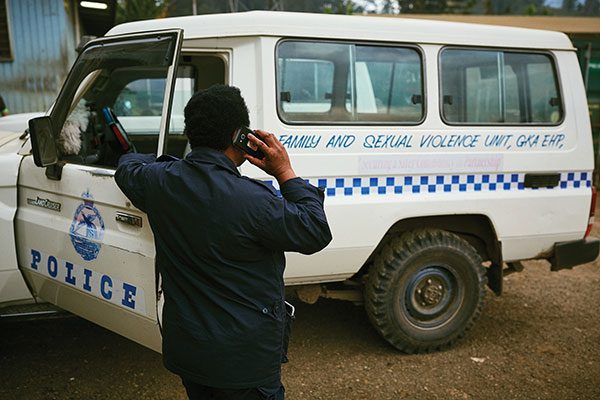
Women in blue
Delivering justice and saving lives is all in a day’s work for Marie (pictured), a police officer who has worked with KUSWA since 2013.
“I’ve been in the police force for almost 32 years … I deal mostly with family and sexual violence cases, sexual abuse, on gender-based violence and sorcery-related killings.”
“Sometimes in the Highlands, people get aggressive. So for a female police officer to go out to the village to talk and get those perpetrators to court, we face challenges.”
“In the Highlands, most of them believe, they believe in sorcery.”
“It’s very hard … for us to convince them that it [is] not true because … that’s their belief.
”Marie’s department often lacks basic resources, like fuel and paper. So KUSWA help however they can to mobilise the police when a sorcery-related attack takes place.
Marie explains, “If there’s a report of sorcery, we work in partnership — so I contact Eriko and she comes in. She puts some money for the fuel … and then we go quickly to the scene. So that’s how we work, and it’s really effective.”
In Marie’s experience, education deters violence: “We tell people that if you kill somebody about sorcery matters, you will be arrested and charged, you’ll go to court, and you’ll face the full law. So we educate them — we do awareness out there.”
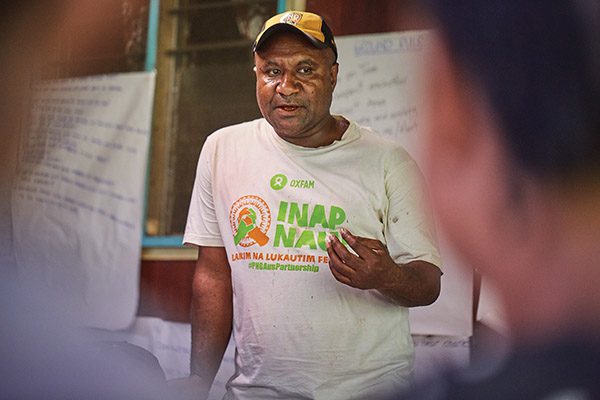
A new leaf
KUSWA’s outreach programs inspire boys and men — like Umba (pictured) — to champion positive change in their communities.
“When I was [a] teenager, I was one of the person that never respected anybody, and I was a perpetrator,” Umba says. He admits that, as a young man, he instigated acts of mob violence, especially against women. But when his aunt was targeted in a violent attack, Umba saw the error of his ways.
He recalls, “She saw me and called my name, ‘Umba’ and we looked into each other’s eyes … I saw her — what they did [to her] — it’s like they are doing it to my mother. So, this is the turning point.”
“From that moment, I changed [and got] involved with KUSWA.”
Umba now leads community conversations about human rights and the detrimental impacts of violence.
“Because of patrilineal society here, men are the head of the family, men make decisions and do what they want. And … because of the masculinity that men have, they use [their power] to accuse people, instead of using for good purposes.”
But Umba says accusations have been declining since he started working with KUSWA in 2010: “I think I’ve changed a lot of youth mindset about violence — aggravated violence, like sorcery-related violence and also gender violence. People are changed.”
Together, we’re championing positive change in PNG. Learn more about the progress your support makes possible.
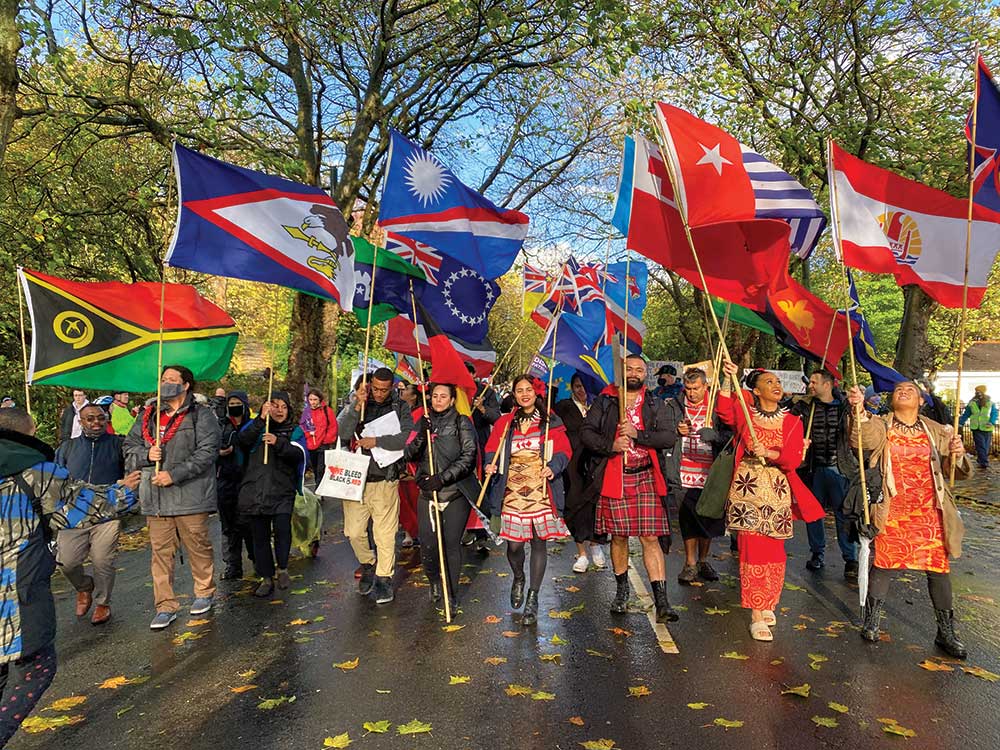
Justice for the Pacific
The climate crisis affects all of us — but not equally. So we’re amplifying the voices of those on the frontline of the crisis, calling for a safe and just future for all.
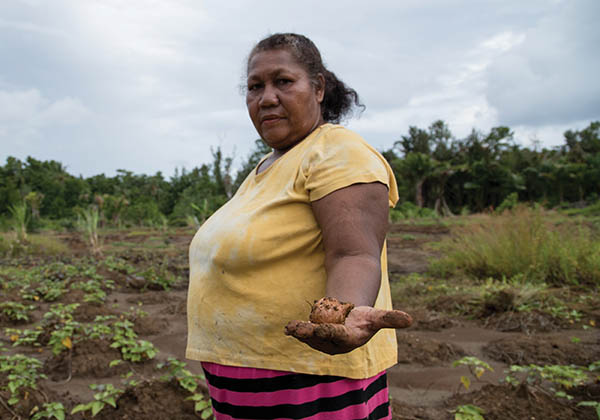
The great injustice of the climate crisis is that it hurts those who are least responsible for causing it, and who are least equipped to protect themselves from it. In short, people like Adriana in Solomon Islands (pictured) are reeling to survive a nightmare they didn’t create.
Adriana lives by the sea in Malaita province, where climate change is making it harder to grow food, “Now that the sea level has risen, it is spoiling our gardens and we have not eaten any potato from that garden.”We want climate justice and we know you do too.
With support from Australian Aid and people like you, our Pacific Climate Change Collaboration Influencing and Learning (PACCCIL) project is raising up the voices of climate action networks across the Pacific to secure a safe, just and sustainable future for the region. Pacific Islands Climate Action Network (PICAN) is one such network.
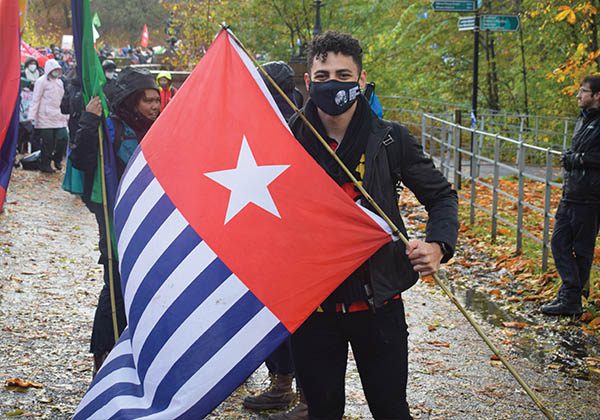
Fijian activist Dylan Kava (pictured) represented PICAN at COP26 in November 2021, where he said, “I am here to represent young Pacific voices, and to hold space for our people who are here in spirit.”
During the climate change conference, Dylan joined delegates from across the world at the Global Climate March: “Together, we marched through the streets of Glasgow calling for climate justice.”
Through PACCCIL, we’re partnering with Pacific thought-leaders like Dylan to ensure that action on climate change in the region is more effective, inclusive and collaborative. Dylan adds, “Young people are capable of mobilising themselves, and it really is the optimism that drives this — optimism not as a privilege, but as a necessity for our survival! If leaders can’t do it, young people will.”
Justice starts with us. Read our new climate finance report, and add your name to growing calls for the Government to fund solutions to the climate crisis.
Envirobot to the rescue
The pandemic has caused untold grief for countless communities around the globe. But in Zimbabwe, it has also inspired one especially innovative solution. Meet Envirobot — the artificial intelligence (AI) platform that’s helping people solve some very real problems.
When big mining companies come to town, local communities don’t always get a fair share of the wealth and prosperity that’s extracted from their lands. In many cases, the unchecked exploitation of land and resources does more harm than good.
In Zambia, Georgina (pictured below) used to earn a decent living from surface mining. But since Chinese-owned Collum Coal Mine started exploiting their lands, their livelihoods have been upturned and their community is grappling with environmental damage.
Telisa says, “The water is bad now. The road used to be tarred but there is no more tar on the road.”
“We thought that when we were selling land to them that our lives were going to improve because they were going to employ our young people. But it is not working out this way.”
That’s why, with funding support from Australian Aid and big-hearted people like you, we’re helping communities right across Southern Africa cope with the impacts of mining. Our Extractives program equips people like Telisa with the tools and know-how they need to challenge unfair mining practices and protect their lands and livelihoods.
Hi-tech justice
In Zimbabwe, our program partner Zimbabwe Environmental Law Association (ZELA) is using AI to empower people to uphold their rights. ZELA has created a WhatsApp-based platform called Envirobot, where users can report environmental problems, such as air or water pollution, or land degradation; speak to lawyers; find helpful news and information; and learn how to address environmental and human rights abuses — all in a Covid-safe way.
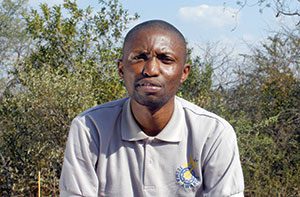
Sikholiwe (pictured) lives in Gwanda, a gold mining town with high levels of unemployment. He learnt about his rights and how to exercise them in a community workshop delivered by ZELA.
“We didn’t know that we have the right to protect the environment. We knew mines were there and we let them work, but we didn’t know at the same time they were harming our environment … We got to know all of this through ZELA.”
He adds, “We have the right to know about things that affect our community.”
Sikholiwe and his community have already used the Envirobot to report problems: “Namely, mines that were discharging dynamite and damaging the asbestos roofing of nearby houses. We wanted those mines either closed, or they move to other areas away from town.
“I used the Envirobot to report these cases on behalf of the community.”
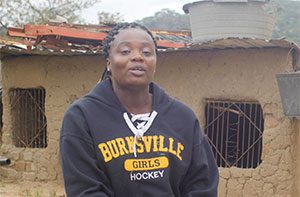
Susan (pictured) works with communities affected by mining in Zimbabwe’s Manicaland province, an area rich in diamonds.
“When illegal mining activities began here in Chiadzwa, most of the families lost their land from the mining companies. We are now struggling to survive as there isn’t enough money to feed our families.”
“We thought that the big mining companies coming here would improve our lives, and our lives would be changed for the better.”
“But since the companies came here, [our families are] no longer allowed to mine diamonds and there were increased cases of human rights abuse. Some people were bitten by dogs while others were beaten and left for the dead by police officers guarding our diamond fields.”
Susan helps local communities uphold their rights by engaging with governments and mining companies. But the pandemic has made in-person negotiations impossible — until Envirobot arrived on the scene.
Susan discovered the bot in a workshop in 2020: “During that training, we realised that since we’re in lockdown we can’t meet different stakeholders that are involved in the mining.”
Envirobot overcomes that hurdle, connecting people with the information and resources they need to make formal complaints and kick off important conversations.
Using Envirobot, Susan has successfully reported people who were illegally cutting down trees.
She adds, “I’ve managed again during the lockdown to help a girl child under the age of 18 who was being forcefully married off in the Buhera area.
“I used the Envirobot — I type ‘hi, I want to talk about children’s rights’ and then that’s when I got an option to contact a lawyer on that issue. Within a few seconds, I was able to speak to Josephine, a legal officer, and explained the issue… She helped us to speak to JCT (Justice for Children’s Trust) and we were able to work with the police as well to help that child. She was able to go back home.”
It’s only early days, but this game-changing innovation is already having a huge impact. Give yourself a pat on the back — together, we’re building a fairer future without poverty, where people and planet go before profits.

A leading light
Cesario (pictured) contracted polio as a baby, leaving him with a disability that’s only made him move faster in his work supporting his community and advocating for disability rights in Timor-Leste.
“At first I didn’t feel any different to my other friends. But when I played football … some people would come and laugh at me. From then, I began to realise I was a person with disability.”
“The biggest challenge in my life is stigma… it is discrimination, which always happened from community… especially in school.”
“[My mother] was very supportive and encouraged me to study because of my condition.” Cesario’s passion for advocacy started at university. He found work with Oxfam partner Asosiasaun Defisiensia Timor-Leste (ADTL), a leading disability rights organisation where he held many roles before becoming Executive Director.
“The most important lessons for me is human rights … In ADTL, when we go to the municipalities to see the conditions of vulnerable people and people with disabilities in the rural area… I think about what we can do for them … or find a program that can link them to the right programs or institutions that work in the sector.”
“My hopes and dreams for Timor-Leste is that the future of Timor-Leste is inclusive and accessible for all.”
